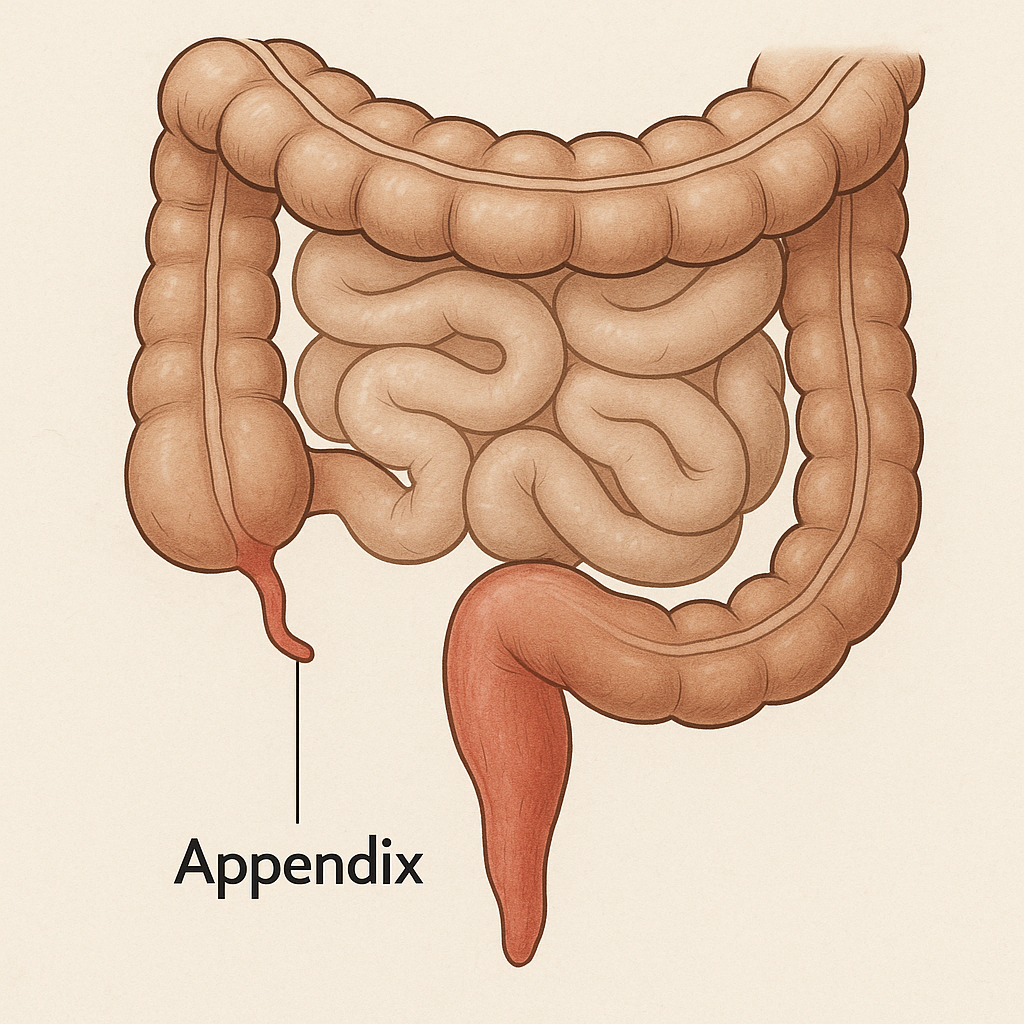For many years, science labelled the appendix as a useless leftover, a small pouch with no real purpose. But nature makes no mistakes. Every organ has meaning, and the appendix is one of the clearest examples of nature’s intelligence.
The appendix serves as a protected sanctuary for beneficial bacteria, preserving a healthy internal environment. These microscopic helpers assist in maintaining cleanliness throughout the digestive tract, recycling waste and supporting the renewal of tissues.
When the body goes through crisis such as diarrhoea, food poisoning, antibiotic use, or deep detoxification, much of the intestinal flora can be lost. The appendix quietly safeguards a reserve of these vital bacteria. Once the disturbance has passed, this backup colony repopulates the colon, restoring digestion, absorption, and elimination.
From a Natural Hygiene perspective, this reveals the depth of the body’s design. There is no need for external interference or artificial supplementation. With rest, fasting, natural food, fresh air, and pure water, the lymph system, stem cells, and bacteria collaborate to rebuild and cleanse the internal terrain.
The appendix is not an outdated organ. It is an essential part of the body’s self-renewal system, reminding us that nature’s design is complete and purposeful. Every function within the body works in harmony when we allow it the conditions to do so.
When the Intestine or Appendix Becomes Compromised
When the appendix or intestines are congested, inflamed, or obstructed, the flow of waste through the body slows down. This prevents efficient elimination and leads to a build-up of decomposing material within the bowel. The result is internal pollution, where toxic substances begin to leak back into the bloodstream.
In this state, beneficial bacteria are reduced while waste-feeding microbes thrive. The blood becomes overloaded with impurities, forcing the liver, kidneys, skin, and lymph system to take on extra work. This internal burden is what Natural Hygiene calls autointoxication — self-poisoning through reabsorption of waste.
Over time, this toxic condition can express itself through a wide range of ailments, depending on the body’s weakest points.
Conditions That May Arise from Intestinal or Appendix Toxicity
- Constipation and irregular bowel movements
- Gas, bloating, and abdominal discomfort
- Appendicitis (as a result of an already toxic bowel)
- Haemorrhoids and anal irritation
- Irritable bowel symptoms and colitis
- Headaches and brain fog
- Skin conditions such as acne, eczema, psoriasis, or rashes
- Chronic fatigue and low energy
- Joint and muscle pain, arthritis, and stiffness
- Sinus congestion and mucus build-up
- Bad breath and coated tongue
- Emotional imbalance, irritability, and mood swings
- Lower back pain or pelvic discomfort
- Circulatory and lymphatic stagnation
- Liver stress and sluggish bile flow
- Kidney strain and fluid retention
- Disturbed sleep and nervous tension
These are not separate diseases but expressions of one underlying cause — systemic toxicity from impaired elimination.
Returning to Balance
When we rest the body and remove the causes of irritation, its natural intelligence takes over. Fasting, pure hydration, sunlight, and clean natural foods allow the lymph system to drain and the intestines to renew. Once the internal terrain is clean, the appendix can once again serve its true purpose: holding the blueprint of healthy bacterial life, ready to restore balance after any crisis.

